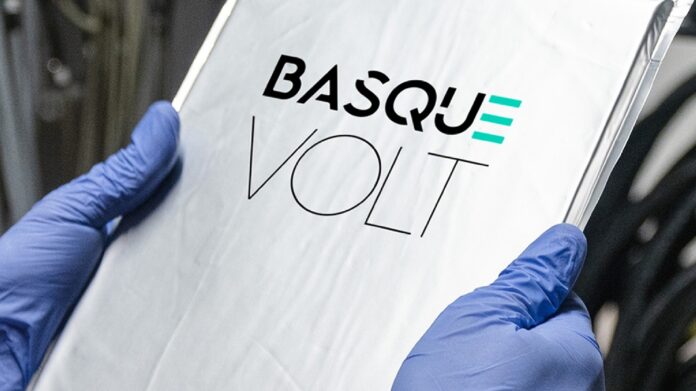Telefónica and Siemens are to provide Spanish battery manufacturer Basquevolt with the “best technological and connectivity solutions” to launch a new “prototyping line” at its plant in Vitoria-Gasteiz, the capital of the Basque Country region in northern Spain. The project specifies an ultra-fast and highly secure industrial network upgrade – which sounds suspiciously like a call for an “ultra-reliable low-latency” (URLLC) private 5G comms networks, possibly from Siemens itself. Except there is nary a sniff of 5G, nor of industrial-grade Wi-Fi 6/7 for that matter.
Instead, the deal focuses on fibre connectivity, with some edge enhancements, plus a high-pressure cybersecurity solution. These are the “best” solutions – at this stage, confirmed Telefónica – and will help to raise Basquevolt’s digital game in a test environment, with a view to set it on a course to “integrate digitalization” across its manufacturing operations.
Telefónica is the ‘prime’ in the new deal; Basquevolt has handed the telecoms company charge of the technical project – to supply “advanced digitalization services [for] this prototype-scale manufacturing plant, both in the provision of connectivity and equipment”. Siemens has been brought in by Telefónica. The Spanish firm will also supply professional services and cybersecurity capabilities to cover both IT and OT infrastructure. Cybersecurity “throughout the industrial process” is a “key to this strategic project [and] to advancing electric mobility,” it said.
Asked what the specified “local-area OT network” comprises, and whether Telefónica is to supply Basquevolt with a private 5G network (and whether or not Siemens is the vendor) or a Wi-Fi 6/7 network, Telefónica responded: “LAN OT includes all the communications needed to meet all the machinery requirements… to deliver data into the different operational systems in the proper format.
It continued: “There are no Wi-Fi or cellular [networks] in the scope of this facility. At this current stage of the project, it’s not necessary to deploy 5G infrastructure. However, it could be considered as an implementation at future stages of the project, since private networks are highly relevant for industry digitalization and Telefonica, as a leading 5G operator, has the expertise to develop them.”
Basquevolt makes solid-state lithium batteries; Telefónica described the discipline as “unique on the continent in terms of its technology”. Its new “prototyping line” will have an unspecified LAN OT network that is “perfectly adjusted to all the communication requirements of the machines both in the production process and the operational systems of the plant”. The new comms infrastructure will comply with ISA/IEC industrial standards. 62443 and ANSI/ISA-95. Siemens will supply switches and routers from its Scalance portfolio of industrial comms gear.
The trio of companies have worked “for months” on a solution that will “house the critical systems that operate Basquevolt’s manufacturing processes reliably”, they said. They reiterated that cybersecurity has been the key principle of the new setup. Telefónica said: “A series of solutions have been implemented to protect the industrial perimeter, segment and restrict unwanted traffic, as well as to detect and respond to threats that the Basque company’s end devices may suffer.
Francisco Carranza, chief executive at Basquevolt, said: “The cutting-edge battery technology that will be developed in this prototype plant requires an extremely solid IT/OT network that allows the control and management of devices, processes and infrastructure, guaranteeing continuous improvement in the productivity, quality, efficiency and flexibility of our manufacturing operations.”

